Authoritarian Schmauthoritarian
Alex Tabarrok muses,
There’s nothing like visiting a foreign country like China to get an appreciation of what it’s like to live under an authoritarian regime. I was reminded of this when I arrived home and found that the TSA had rifled through my baggage.
That’s the entirety of his post. I presume he means to shed perspective (we complain about high handed government policies in the US but we’re amazingly free compared to just about everywhere else) but one could read it the other way (it takes going through airport security and dealing with the TSA gestapo to truly appreciate authoritarianism).
Of course, “Not As Bad as Red China” is not exactly a motto we should aspire to.
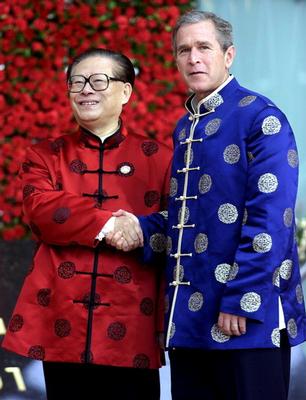

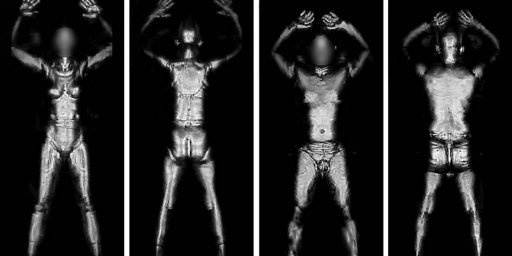
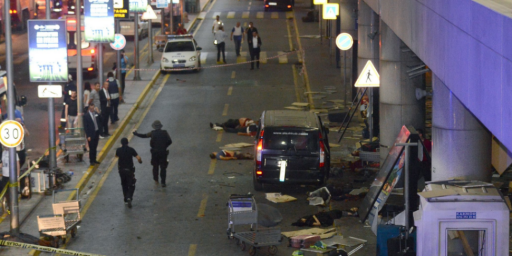
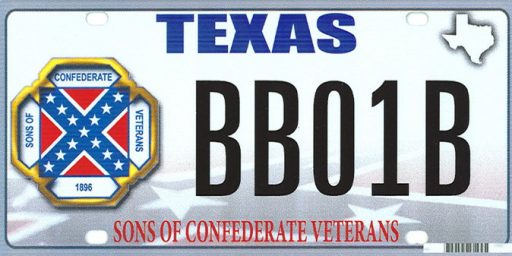
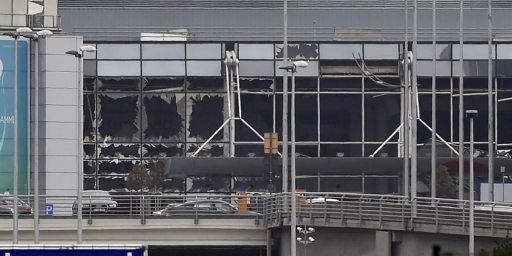

The available alternatives would seem to be
1. Nobody can be responsible for airline security. Unfortunately, somebody has to be responsible or flying ridership will fall to levels that are intolerable to the airlines. They’d collapse (they’re already collapsing).
2. Let the airlines be responsible for security and hold them accountable for lapses. The airlines had demanded that be the case until 9/11. Now they don’t want the job.
3. Some other private organization, financially capable of shouldering the responsibility, could get the job. Nobody is exactly clamoring for the job and, besides, would Alex really prefer to have Blackwater responsible for airline security?
4. The government can do it.
Let’s not be childish. How about we choose from among the viable alternatives rather than wishing there were others?
Agree. I pick #2.
The problem with the current method is that we have government agents engaged in Constitutionally dubious searches of citizens not suspected of wrongdoing in order to enter a privately owned, for-profit, private public accommodation.
The search is inconvenient but would only be mildly annoying if conducted by private entities.
Presumably, too, they’d be more customer friendly than TSA has any reason to be. I suspect we’d get rid of inanities like shoe removal and 3 oz size restrictions on toothpaste.
DHS, TSA, or some other government entity could still be available as arresting officers or dispute resolution agents in case possible terrorists are flagged.
Me too. Ain’t gonna happen. On September 20, 2001 I wrote my Congressman, both Senators, and the White House. I also called my Congressman and both Senators. My message was simply that we shouldn’t indemnify United and American Airlines against losses as a result of the attack. You’ll note what the response was.
Actually, I’m quite surprised that the TSA searches haven’t been struck down as unconstitutional. Perhaps one of your resident legal eagles can ‘splain it to us. It seems to me that the searches and seizures routinely done by TSA have a lot less cause than stops of automobiles by local authorities.
Airplanes are Fourth Amendment Free Zones due to special needs. OrinKerr
Assuming a hijacking, or God forbid another 9/11… Tabarrok and his like would be on the front lines, torch and pitchfork to hand, screaming at volume 11 that the administration had failed in it’s security obligations.
That said, it should be noted in fairness, that such things have not happened, despite all of the faults surrounding the TSA and other security measures that have been taken.
I note further that under any Democrat administration, we’d be seeing such unbiased sources as the New York Times, and WaPo, labeling the efforts of the TSA an unqualified success story. As it is, once again, the comparisons get dragged out between our situation, and that of a ruthless dictatorship.
You’ll forgive me if I don’t march to that tune.
My preference would be for the government to be involved with creating the standards, perhaps even contributing equipment and infrastructure.
But the actual personnel should be private; the government’s role should be oversight and investigation (of the passengers and the private security).
Bithead,
We actually don’t know that the TSA has made us safer. If one does X and Y doesn’t happen, it does not necessarily mean that X prevented Y.
That having been said and if we assume that the TSA performs a needed or necessary function, I have a hard time accepting the notion that they have to behave as they do nor does it mean that they are doing their job in an optimal way.
I am utterly tired of the argument that because we haven’t been attacked that that fact somehow validates a specific policy.
Granted, but two questions, Steven;
1: Safer than what? No security at all? A private concern doing the job? What alternatives do you propose to the TSA?
(1a: if a private firm, what authorities do we grant such people where goverment wouldn’t be involved? Seems to me much of the duties involved, require an invoking of some level of governmental power)
2: How to measure such success, then, if not by result? Seems to me that’s the only tool we have to measure by.
The policy that is in place is in place because for some reason they’re not allowed to profile. The policy would be just as effective if they only screened males aged 15 to 40 with Middle Eastern surnames, but there’d be a lot less for them to do, and the caterwauling from the bleeding hearts would be cranked up to 11 all the time.
The policy may or may not be preventing further attacks. The policy is what the government came up with after the last time an airliner was successfully hijacked. Until the next attack, and/or the Muslims run out of money (for bribes, passports, and pilot training), we’ll be stuck with the current policy.
The shoe removal and the three liquid ounce limitation are in response to specific instances where there were plans to bring down planes using bombs in shoes and by combining small amounts of fluids onboard.
I can agree that the TSA is rather ham-handed and operating primarily with a focus on the past without believing that there aren’t good reasons for them doing what they are doing. But you have to remember that the flying public is not the TSA’s customer. That privileged position belongs to the federal government and their customer seems to be quite happy with what they are doing. Process, bureaucracy, liability concerns, and fear of bad publicity are what drive TSA policies and functionaries.
On the other hand, the driver for the TSA problems are acts of terrorism and the fear of future acts of terrorism. These are not Michael Chertoff’s fault.
I wish you the best as you try to “fix” the federal government.
The plan, such as it was, to make explosives on the plane with relatively small amounts of liquid was laughably implausible. The protocols required consistent stirring at low temperatures (ice bath required). After the mixing and stirring the liquid would need to be evaporated off leaving a crystaline explosive. This is another example of something being done simply to look like something is being done rather than responding to a real threat.